Installation of the Windanker offshore wind farm substation. © 50 Hertz.
Windanker offshore wind farm
Windanker, our third offshore wind farm in the Baltic Sea
Iberdrola projects Offshore wind Germany
The Iberdrola Group is developing its third offshore wind farm in the Baltic, Windanker, with an installed capacity of 315 MW. The company is thus strengthening the Baltic Hub, which will add more than 1,100 MW of installed capacity.
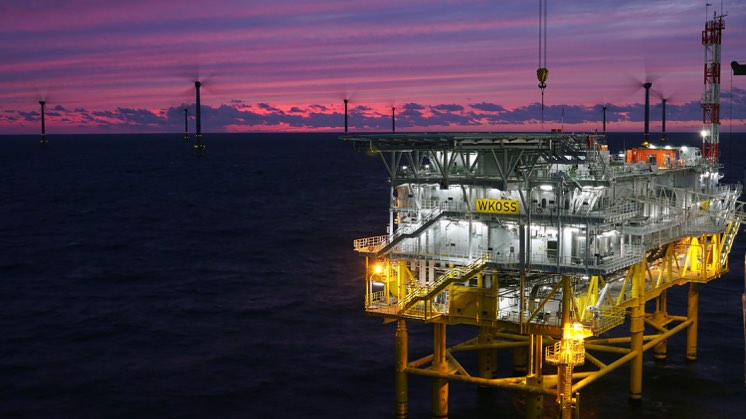
Windanker offshore wind farm




Iberdrola is installing a new renewable project: the Windanker offshore wind farm, which is located in German waters of the Baltic Sea. This facility is the Group's third wind power project in the Baltic.
Windanker has an estimated investment of more than €1 billion and will reach an installed capacity of 315 MW after its commissioning, scheduled for the last quarter of 2026. At the end of 2024, Iberdrola brought the Japanese utility Kansai into this offshore wind project. The Japanese company co-invested in the wind farm, acquiring a 49% stake, while Iberdrola retained control with the remaining 51%.
In addition, the European Investment Bank (EIB) has signed a €500 million green loan with Iberdrola for this offshore wind farm. The transaction is guaranteed by the Spanish export credit agency, Cesce, and is the first case in which a guarantee developed jointly by the EIB and Cesce has been used to support green projects led by Spanish companies outside Spain. Furthermore, this project is part of TechEU, the EIB Group's programme to accelerate innovation in the EU, which aims to mobilise €250 billion in investments for start-ups, scale-ups and innovative companies across Europe by 2027.
Once operational, the majority of the renewable electricity generated at Windanker will be traded through long-term power purchase agreements (PPAs) on the German market. In total, this offshore wind farm will supply renewable electricity to around 600,000 people per year.
Thanks to the evolution of offshore wind technology and its knowledge of the Baltic Sea, Iberdrola will maximise the efficiency of Windanker, which will incorporate new generation turbines with a unit capacity of approximately 15 MW.
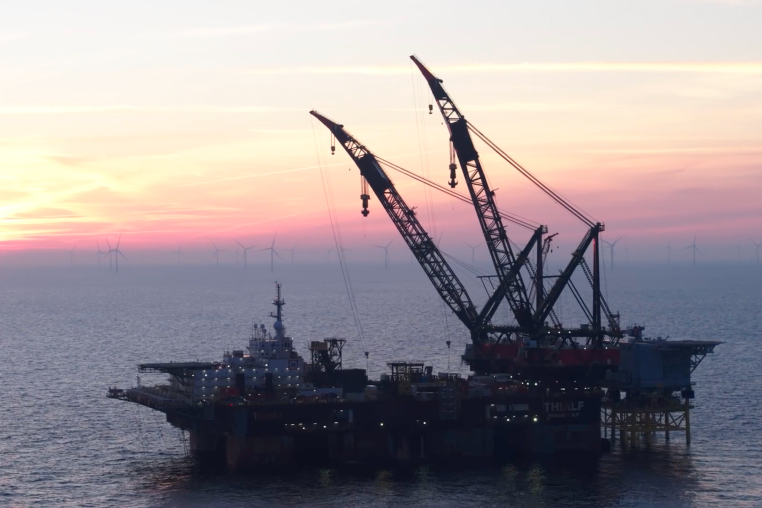
Work on Windanker is making good progress
Still under construction and with geotechnical studies underway, the future wind farm has already received all the necessary approvals to start operations. The latest approval was granted in April 2025 by the German Federal Maritime and Hydrographic Agency (BSH). Prior to that, Iberdrola received authorisation from 50Hertz, the electricity system operator in northeast Germany, for the submarine cable route. This is essential to connect the offshore substation – about 24 kilometres away – to the German national grid.
Work began after the summer of 2025 with the installation of the first monopile. The wind turbines will be installed in 2026, and the offshore wind farm is scheduled to come into operation in the last quarter of 2026. In the meantime, the Spanish company Windar has already completed the delivery of the 21 foundation structures, which will be up to 84 metres long and weigh 2,100 tonnes.
Siemens Gamesa will be in charge of building the 21 wind turbines (Siemens Gamesa SG 14-236 DD), which will be among the most advanced and powerful in the world (each with a capacity of up to 15 MW). Each wind turbine is also equipped with a revolutionary 236-metre rotor and direct drive technology, which increases reliability and operational performance and also allows annual production to exceed that of previous models by more than 30%. Innovative engineering and construction techniques will be applied throughout the wind farm to ensure maximum efficiency, safety and sustainability.
The transport and installation of the monopile foundations and interconnecting cables are being carried out by Van Oord, the same company involved in the development of the Baltic Eagle offshore wind farm. As well as this other Baltic project, the Dutch company will deploy its 8,000 tonne heavy-lift vessel, called Svanen, which has installed more than 700 foundations across Europe.
The Windanker project will enable Germany to reduce carbon emissions by around 672,000 tonnes of CO₂ per year and support the country's goal of achieving an 80% share of renewables by 2030. Regulation in Germany is characterised by stability and predictability, creating a framework of confidence for renewable energy developers.
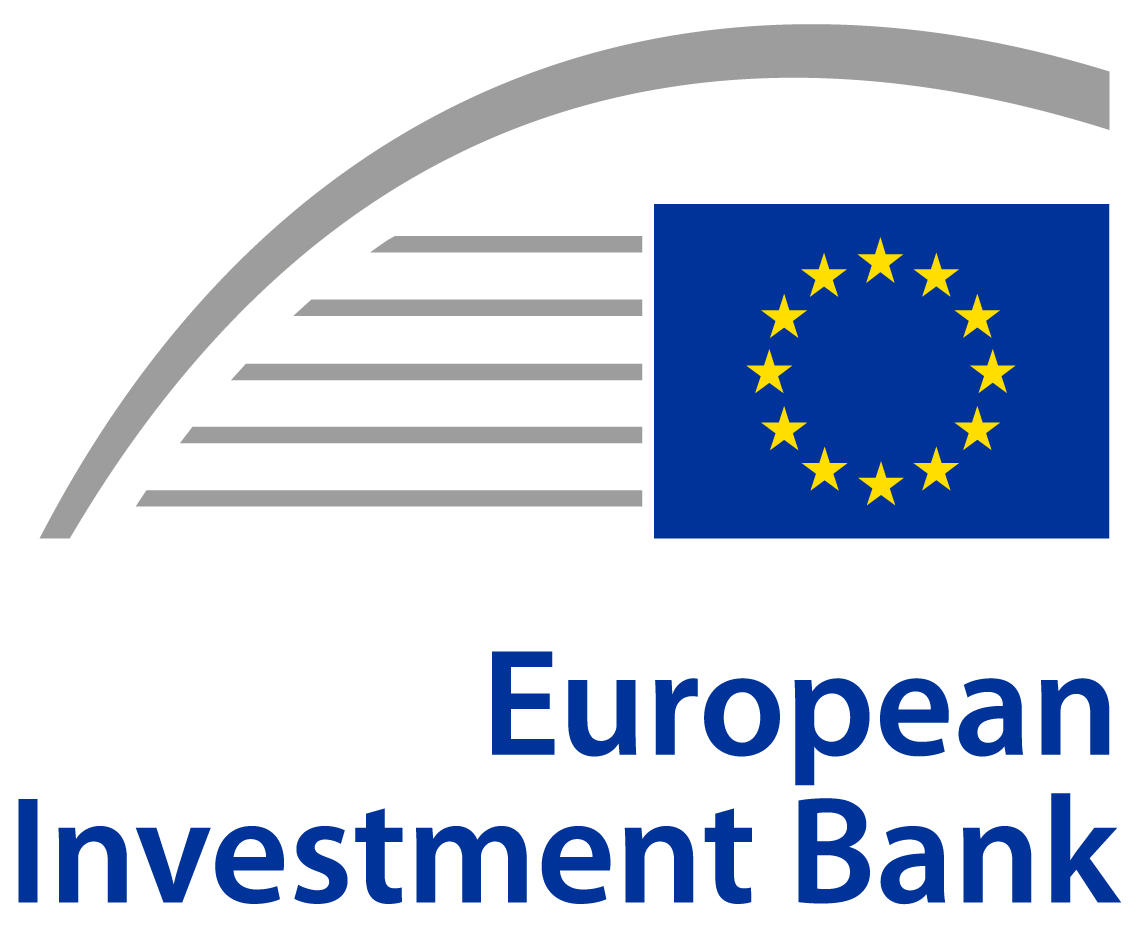 Project financed by the European Investment Bank.
Project financed by the European Investment Bank.
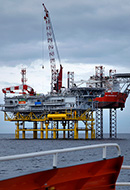
Construction of an offshore wind plant
Everything about offshore wind farm construction.
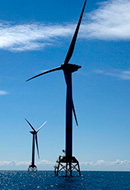
Evolution of wind energy in Europe
The European wind market has grown strongly over the last 25 years. Find out more.
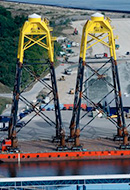
Offshore wind turbines foundations
How are offshore wind turbines anchored at sea?
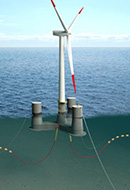
Floating offshore wind
A milestone to boost renewables through innovation.
Strengthening the Baltic Hub
The project will strengthen the Baltic Hub led by the company in Germany, which will add more than 1,100 MW of installed capacity, following a joint investment of around €3.5 billion. The Hub is also made up of the Wikinger (350 MW) wind farm, in operation, and Baltic Eagle (476 MW), under construction.
Windanker will also benefit from other synergies during its implementation, as its development coincides with that of the parks in the East Anglia Hub complex in the UK.
Iberdrola, world leader in renewable energies
At Iberdrola, we committed to renewable energy more than two decades ago as a fundamental pillar on which to build our safe, clean and competitive business model. Thanks to this vision, we are currently world leaders in renewables, reaching 45,263 MW of clean energy in operation at the end of the first nine months of 2025.
This commitment is reflected in the €21 billion that our Strategic Plan 2025-2028 allocates to Renewables and Customers, with 38% dedicated to offshore wind, 24% to onshore wind, 10% to solar photovoltaic and another 10% to energy storage.




